Looking back on the blog
Reading Pavel’s last entry as well as the one where he discussed the value of a degree, I’ve been thinking, too, about the value of studying foreign languages. It’s not just about new grammar and vocabulary, or being able to translate from one language to another. From my view, the value of doing so has more to do with learning how to express your ideas in a different culture – through a different perspective and perhaps in a context that helps everyone broaden their views. At the Global Media Forum, I met a number of people who serve as good examples of what I mean.
![]() read more
read more
Rekindling old questions in Berlin
After visiting Bonn for the DW Global Media Forum, I spent two days in Berlin with my friends. It had been almost exactly two years since I last saw them. It was a little bit like being back home.
I went back to the student housing unit I had lived in for a year and, suddenly, I stepped back into the conversations we used to have. I have missed them dearly. My friends stayed at the ECLA, and they are now moving into the fourth year of the BA program, in which they have to work on a project for a full year. Vira told me she is going to do her project on an artist who takes on the relationship between the capitalist market and art. We had good conversations about the creative process and the struggles we both have when facing it.
![]() read more
read more
Reflections on the preconditions for learning
On Wednesday, the third plenary session of the DW Global Media Forum focused on education as the milestone for sustainable development. Denis Goldberg, a social activist from Cape Town, South Africa, argued, “The focus of education should shift to sustainability because we depend on it.” Doing so requires taking action on issues including overpopulation. One of his suggestions for limiting population growth was expanding social safety nets. By doing so, people move away from the idea that having children is the only way to ensure a stable future.
![]() read more
read more
On the need for media literacy and how to promote it
The Global Media Forum started on Monday with plenary session 1: “Rating vs. Quality: Media caught between market pressure and the mission to educate.” It was a very engaging discussion, and there were representatives from the US, Germany, Russia and South Africa. Above all, participant Trevor Ncube made a particular impression on me. He is deputy chairman of M&G Media Ltd in South Africa and chairman of Alpha Media Holdings in Zimbabwe, and he started by saying that when the media neglects Africans, it is generating misinformation.
![]() read more
read more
Argentina’s social dialogue heading the wrong way
This is my last entry before we will all be writing from the Global Media Forum in Bonn (Germany). I was shocked to hear that Hellgurd’s entries will not be published any more due to the severe threats he received. It made me go back to the very beginning of the project and look at Hellgurd’s video presentation. He speaks of music as a universal language that can bridge the differences among people.
![]() read more
read more
Empower the student to learn
At the beginning of the week I was talking to my coworker Patricia about how education is approached in our country. She coordinates a regional program aiming to strengthen technical education in different fields, like math, science, industry-applied technology and school management. The program’s various groups in different regions of the country do not work directly with students; they work with teachers and school principals. The aim is to train educators and hence improve technical education by setting higher standards.
![]() read more
read more
Teachers: taking action at the root
In March this year, there was a huge strike from the teachers’ union in which they demanded a salary raise. Every year, the timing works out almost identically: the academic year in Argentina starts in March, and some three weeks to a month before that, negotiations with the union take place. There was the threat that classes would not actually start because no agreement had been reached. Teachers in Argentina have some of the lowest wages in society, so it’s very common that they have to overwork themselves to make a decent living.
![]() read more
read more
Innovative approaches to community activism
Apart from my work at the NGO, I have time to freelance as a journalist from time to time. Last week I interviewed Silvio, the director of Los Grobo Foundation. We talked about the role of NGOs in society, the different actors in a community and how to present them to benefit social development. I thought it was worth sharing some of his ideas here!
![]() read more
read more
Facing social problems with action (Part 2)
Last time, I wrote about a co-worker and activist named Juan. Now I want to turn to my life-long friend Victoria. As I said before, she couldn’t be more different than Juan: She disagrees with the political party in charge of the administration, and sees no point in political action. She is, however, very much involved with her church community, and, in particular, with Manos a la Obra (which means ‘Shoulders to the wheel!’), a project that was started by a college preaching group in Mendoza (a province in the west of Argentina). Since 2008, it has also been held in San Isidro, the neighborhood in the Greater Buenos Aires Area where Vicky lives. The movement draws inspiration from the Christian faith, and it tries to alleviate the effects of extreme poverty.
![]() read more
read more
Facing social problems with action (Part 1)
As I’ve described before, people get involved in different ways to take action and face emergency situations, and education in the most humble communities in Argentina is definitely one such situation.
When I think of civil action, two people come to my mind: my coworker, Juan; and my life long friend, Victoria. I’ll describe each in different entries. They couldn’t be more different from one another. And yet, their concerns lead them both to advocate for more social inclusion.
![]() read more
read more





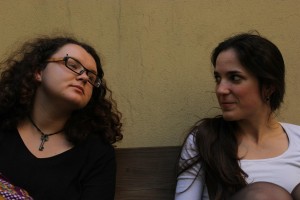




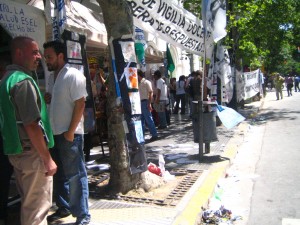
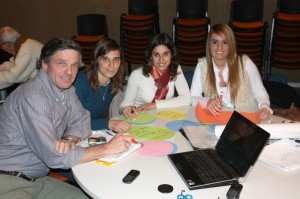
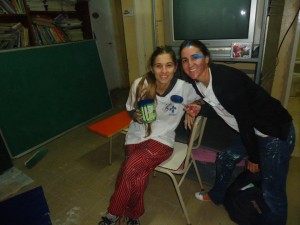
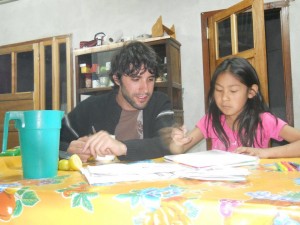




Feedback